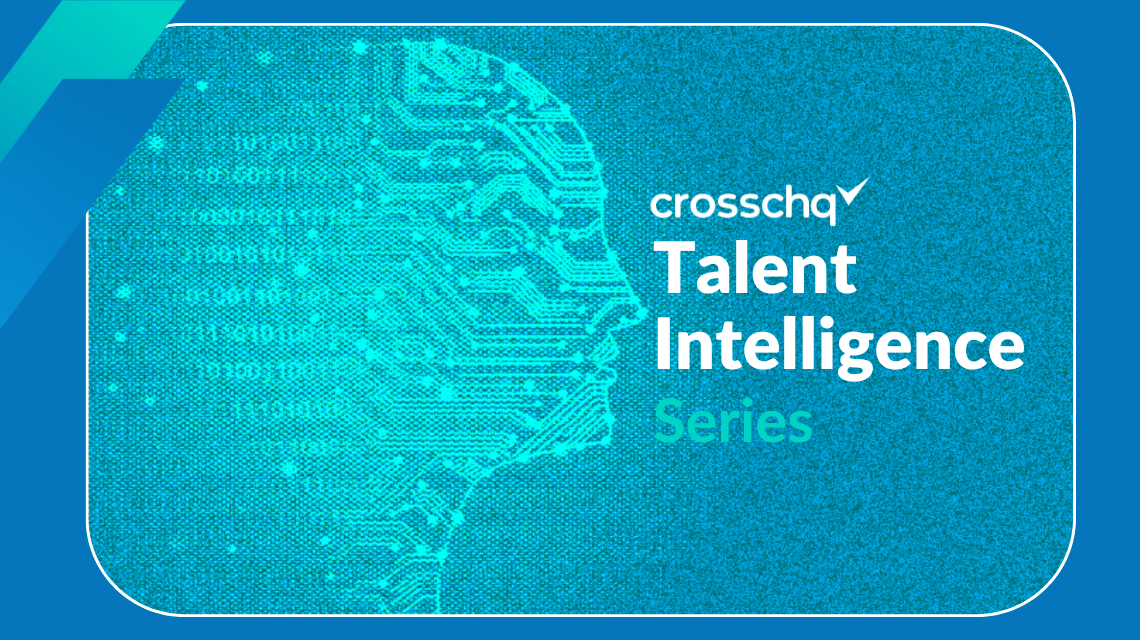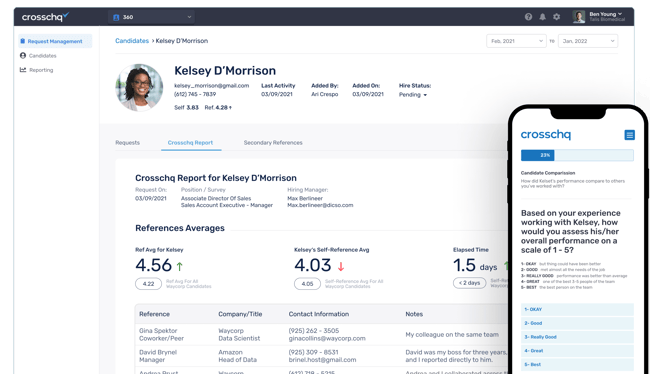

Crosschq Blog
5 Things About Talent Intelligence You Really Need to Know

Talent intelligence is becoming a hot buzzword in the recruitment industry, but what exactly is talent intelligence, and why is it so important?
Recruiters and HR managers can sometimes struggle to accurately define what talent intelligence is to the C-suite. Misconceptions abound, and many CEOs only have a rudimentary familiarity with the idea of talent intelligence, usually through a single aspect.
It’s easy to think that one part of talent intelligence is the sum total, but successful organizations ensure complete hiring intelligence deployment, including educating CEOs on everything talent intelligence is - and isn’t. If you really want to understand what talent intelligence is, here are five things you really need to know.
#1: Talent Intelligence isn’t Just Market Intelligence
Market intelligence includes all data having to do with market research, including data on the industry spanning from sales to demographics. While market intelligence has an important overlap with talent intelligence, the two things are different.
There are multiple areas of market intelligence:
- Competitor intelligence, including information about their goals, products, services, and yes, their workforce.
- Product intelligence, which looks at how your own product or service fits into the market and if it fills an empty niche
- Market understanding, to see where the market is going and if there is a future for your company in it
- Customer understanding, including the customer lifecycle and how to retain customers and support ongoing revenue streams
- Market research, including the history of the market, potential future trends, and affecting factors
The facet of talent intelligence that overlaps with market intelligence focuses more narrowly on competitors’ employees, from recruitment tactics to retention ploys, including compensation packages and training opportunities.
#2: Talent Intelligence isn’t Just Artificial Intelligence
AI can play a big part in talent intelligence, helping companies sort through Big Data and find relevant information that can help inform talent recruitment and retention. But all talent intelligence isn’t driven by AI.
AI can touch all types of business objectives, from helping to power automation to streamlining workflows and customer experiences. Where talent intelligence and artificial intelligence overlap is the point where AI-driven algorithms help in the process of candidate filtering and screening to surface top talent.
Artificial intelligence alone doesn’t deliver top talent. The winning combination is AI supporting a human-driven recruitment process that leverages all tools at its disposal, including talent intelligence.
[See 6 Things Your Talent Intelligence Tools Must Do to Hire the Right People, Faster]
#3: Talent Intelligence isn’t Just Talent Acquisition and/or Retention
Talent intelligence can be used to support talent acquisition, but it’s bigger than that. While acquisition focuses on attracting and onboarding, talent intelligence is broader, helping to identify what makes a good hire and how to spot them in a sea of resumes.
Talent intelligence can also help reveal red flags that indicate a new hire is liable to jump ship before the first six months of their employment (something nearly two out of three employees report doing), incurring a fresh round of recruitment costs. Restricting talent intelligence solely to the acquisition step can be a waste of potential.
The same goes for talent retention. Retention isn’t a tool, a goal, or a plan; instead, it is an outcome of a well-run company that values employees and pays attention to managerial setups and motivations.
However, talent intelligence can play a large part in how an organization handles retention, from helping to identify what employees want and need to gauge what they aren't asking for that would still strengthen their loyalty.
#4: Talent Intelligence isn’t Just People Analytics
Many aspects of talent intelligence are outward-facing, drawing information from competitors, the industry, the candidate pool, and more. Just as many face inward drawing on internal datasets to help spot patterns and trends in talent acquisition and retention.
People analytics is an important part of talent intelligence, but it stays more on the HR side, tracking quality of hire metrics and evaluating performance and potential. Both are critical to the proper running of a company’s workforce, but as with other items in this list, there’s just overlap, not true duplication.
Talent intelligence can be used in all people-related decisions, but it’s more than just people analytics; it drives decisions at higher strategic levels as well. With talent analytics, companies can not only help the people in their organizations perform better and be happier, but they can also discover what changes adding new employees can affect in the organization and plan for them to avoid unwanted disruption.
#5: Talent Intelligence isn’t Just Data Gathering
This is the final and perhaps most insidious assumption made about talent intelligence; that it is raw data gathering that goes someplace within the organization and magically turns into act actionable insights.
Data without some form of analysis or processing isn’t intelligent - it’s just data. Raw data doesn’t provide the information required to base decisions on, and can’t be leveraged for talent-related actions.
It’s critical to develop a well-rounded talent intelligence strategy that covers the entire intelligence cycle from information gathering to processing through analysis to segmentation and trend spotting.
The culmination of talent intelligence is the recommendations that come from these completed series of processes. With great talent intelligence in place, companies are empowered to take their recruitment and retention processes to an entirely new level.
Crosschq 360 can be a significant part of your organization’s talent intelligence funnel. From streamlining candidate assessments and reference checks to creating a non-biased, candidate-friendly process, it can be one aspect of talent intelligence.

Crosschq Recruit plays another role, levering talent intelligence to deliver ready-to-hire candidates who have opted into a fast-tracked recruitment process. The extra data provided by a candidate network reduces the time to fill for faster onboarding.
/platform_section-recruit.png?width=650&height=415&name=platform_section-recruit.png)
Crosschq Analytics plays heavily into talent intelligence, delivering reporting and insights that can be used to drive retention strategies and improve quality of hire measurement and DEIB implementation across the board.
/analytics_section1.png?width=650&height=391&name=analytics_section1.png)
Are you ready to make the case for more robust talent intelligence for your CEO? Crosschq supports many key processes related to talent intelligence and adds a powerful suite of tools to your approach to talent acquisition, retention, management, and more. Contact us for a free demo today.
Take the Guesswork
Out of Hiring
Schedule a demo now



%20-200x43.png)





